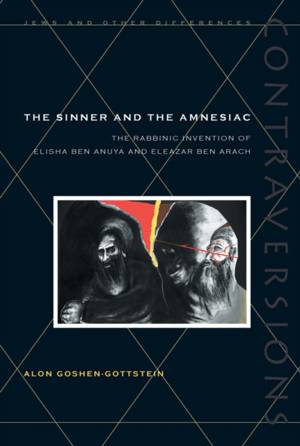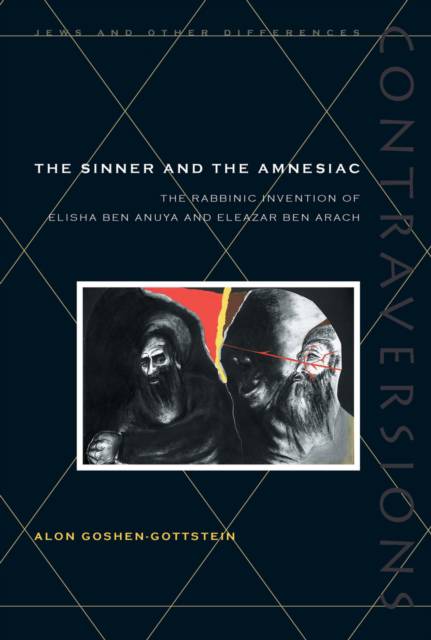
- Afhalen na 1 uur in een winkel met voorraad
- Gratis thuislevering in België vanaf € 30
- Ruim aanbod met 7 miljoen producten
- Afhalen na 1 uur in een winkel met voorraad
- Gratis thuislevering in België vanaf € 30
- Ruim aanbod met 7 miljoen producten
The Sinner and the Amnesiac
The Rabbinic Invention of Elisha Ben Abuya and Eleazar Ben Arach
Alon Goshen-GottsteinOmschrijving
Elisha ben Abuya is one of the most intriguing figures in early rabbinic literature, consistently capturing the Jewish imagination as the arch-heretic, apostate, and great sinner. Because of the vague nature of the rabbinic sources relating to him, later generations, particularly in modern times, have been able to project upon him the visions of whatever they saw as either negative or ideal in the figure of the rebel apostate.
This book systematically analyzes all sources referring to Elisha ben Abuya, and in so doing, confronts the difficulties of deriving reliable information from rabbinic materials and of writing the biography of a rabbinic hero. The author argues that we have no way of discovering the historical Elisha ben Abuya; he is the product of the creative handling of traditions by later generations. Later generations do not fancifully invent the figure of Elisha but interpret and transmit earlier traditions, trying to resolve the contradictions and to interpret the enigmas they encounter. In the context of this interpretive process, a unique historical image is created, a sage who is born out of tradition, not historical memory.
The book also studies Rabbi Eleazar ben Arach. Here, too, the image of the sage does not stem from a historical memory of the sage but from an ideological function which the image of the sage fulfills. Eleazar has come down to us as one who forgot his Torah. Thus, both the sage who is said to have become the greatest of rabbinic sinners and the sage who is said to have forgotten his Torah are products of the literary creativity of rabbinic storytellers, who convey a particular ideology through the image of the rabbinic heroes they portray.
Specificaties
Betrokkenen
- Auteur(s):
- Uitgeverij:
Inhoud
- Aantal bladzijden:
- 432
- Taal:
- Engels
- Reeks:
Eigenschappen
- Productcode (EAN):
- 9780804733878
- Verschijningsdatum:
- 1/12/2000
- Uitvoering:
- Hardcover
- Formaat:
- Genaaid
- Afmetingen:
- 157 mm x 226 mm
- Gewicht:
- 725 g

Alleen bij Standaard Boekhandel
Beoordelingen
We publiceren alleen reviews die voldoen aan de voorwaarden voor reviews. Bekijk onze voorwaarden voor reviews.











